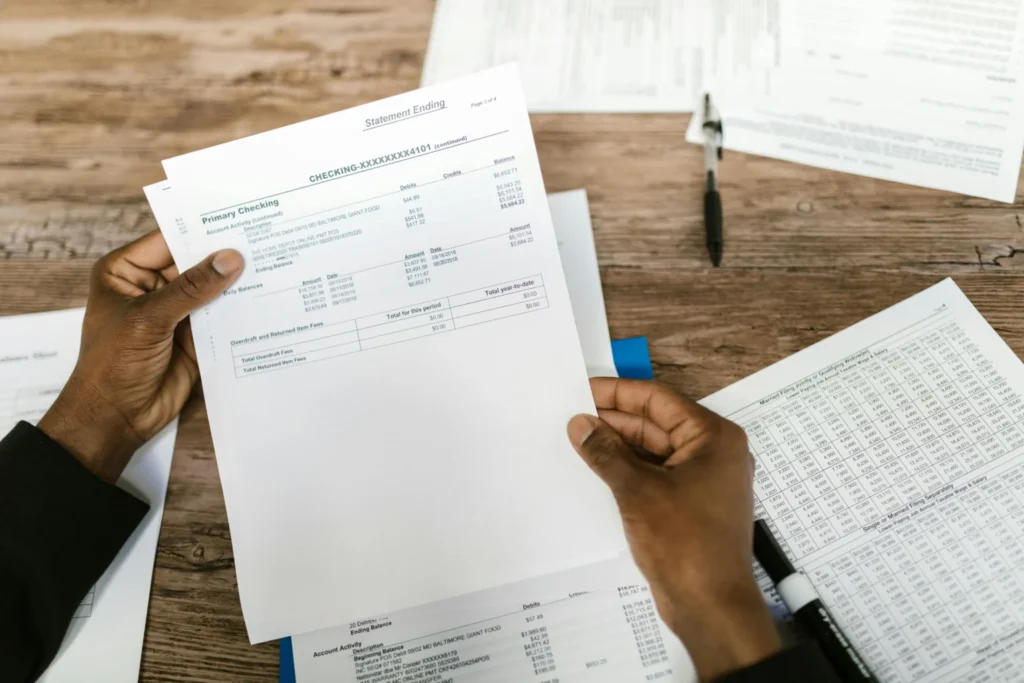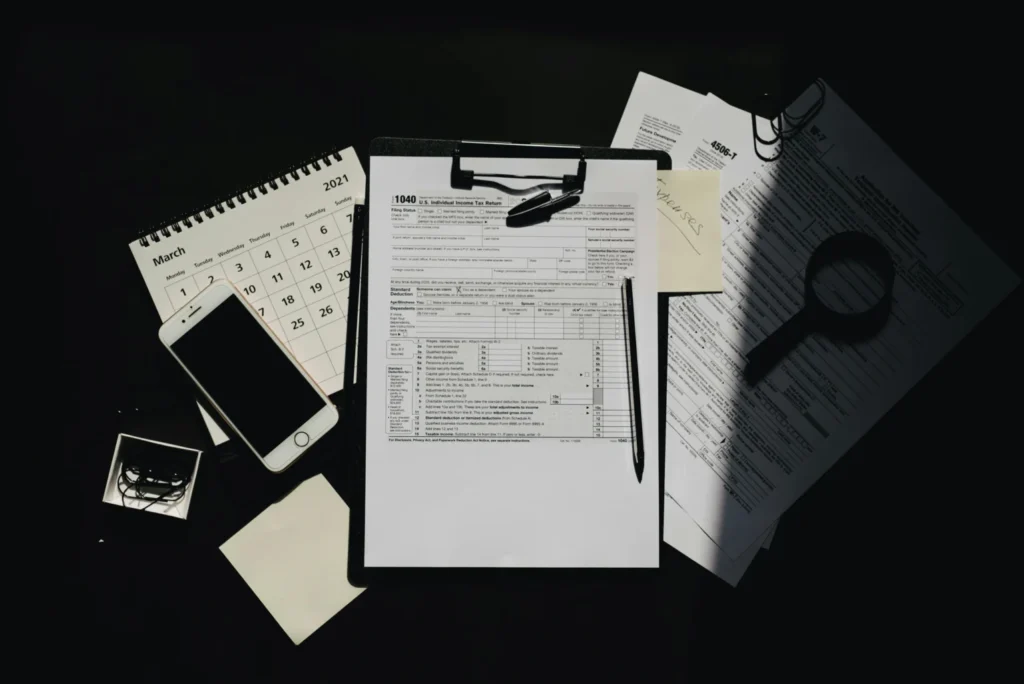Understanding the distinctions between IRS forms W-9, 1099-NEC, 1099-MISC, and 1099-K is crucial for accurate income reporting and tax compliance. Each form serves a unique purpose: Form W-9 collects essential payee information, while Form 1099-NEC is used to report nonemployee compensation. Form 1099-MISC captures various types of income outside of nonemployee compensation, and Form 1099-K is designed to report income from electronic payment transactions.
For businesses, correctly managing these forms is essential not only for meeting IRS reporting obligations but also for ensuring that payouts can be appropriately deducted as business expenses. This article will guide you through the specific uses of each form, helping you navigate the complexities of tax reporting with confidence.
Key Takeaways
- Forms W-9, 1099-NEC, 1099-MISC, and 1099-K are used for income reporting and tax compliance but they serve distinct purposes.
- Form W-9 is used to collect payee information.
- Form 1099-NEC reports nonemployee compensation.
- Form 1099-MISC reports various types of income other than nonemployee compensation.
- Form 1099-K reports income from electronic payment transactions.
- Businesses and entities use these forms to meet their tax reporting obligations, and to have the proper documents to report payouts to the IRS, and then in turn, take them as business expenses
What Is The Purpose Of IRS Form W-9?
Form W-9 (Request for Taxpayer Identification Number and Certification) is used to collect the taxpayer identification number (TIN) or Social Security Number (SSN) of individuals or entities that you make payments to, usually any payment over $600. It is used to gather payee information, including their legal name and TIN/SSN, which is necessary for reporting payments to the IRS.
Form W-9 is typically obtained from payees before making payments to them to ensure accurate reporting but should definitely be collected at the end of the tax year before 1099s are issued. The information on the W-9 form is then used to issue 1099-NEC or 1099-MISC to the payee so those expenses can be deducted by the entity
What Is The Purpose Of IRS Form 1099-NEC?
Form 1099-NEC (Nonemployee Compensation) is used to report nonemployee compensation paid to independent contractors, freelancers, and other non-employee service providers. It is used to report payments of $600 or more made to non-employees for services rendered during the tax year. This form was introduced to replace the use of Form 1099-MISC for reporting nonemployee compensation.
What Is The Purpose Of IRS Form 1099-MISC?
Form 1099-MISC (Miscellaneous Income) is used by businesses to report various types of income paid to individuals or entities for rents, royalties, prizes, awards, and other miscellaneous income. It is no longer used for independent contractor payments. Businesses are required to send a copy of Form 1099-MISC to the recipient and another copy to the IRS.
What Is The Purpose Of IRS Form 1099-K?
IRS Form 1099-K (Payment Card and Third-Party Network Transactions) is used to report payments processed through payment card transactions (e.g., credit card) and third-party network transactions (e.g., PayPal) by businesses. It is typically used by businesses that engage in a high volume of electronic payment transactions. The purpose of Form 1099-K is to report the total gross income received through these transactions, helping the IRS track electronic payment activity.
Why Should I Request a W-9 Form From My Contractors and Freelancers?
Businesses should request a W-9 for tax information from service providers to whom payments of more than $600 are made. This is to ensure the company has the correct information to issue a 1099 in January. In doing so, the company can then deduct the payment as an expense against business income.
Payments to independent contractors and professional fees over $600, and rental payments, interest, and dividends, now require a 1099. Ideally, companies should request a completed W-9 from all payees before the first payment is made. If not, making sure you have a W-9 from all your vendors by the end of the year gets your company ready for the 1099 filing deadline, which is January 30th.
What is Form 1099 Used For?
Payments to contractors, professional fees, rental payments, interest, and dividends are reported to the IRS on 1099s. All Contractor and other professional fees over $600 are reported on 1099-NEC (non-employee contractor) while rental, royaltie,s and health care payments are reported on 1099-MISC. Interest and dividends are reported via 1099 INT and 1099 DIV, respectively, with a threshold of $10 for both.
What’s the Difference Between 1099-NEC and 1099-MISC?
1099-NEC (Non-Employee Contractors) replaced the 1099-MISC to report payments to service providers, freelancers, and independent contractors. 1099-MISC is still used for reporting rental payments, royalties, and other income.
Most Of My Vendors And Independent Contractors Are Outside The US And Don’t Have A TIN Or SSN, So They Can’t Fill Out A W-9. What Should I Do?
For workers or vendors outside the US, you should have a W-8BEN (for individuals) or W-8BEN-E (for entities) on file – Certificate of Foreign Status of Beneficial Owner for United States Tax Withholding and Reporting.
Generally, foreign persons are subject to a 30% rate on income they receive from U.S. sources, or lower, depending on the tax treaty between the vendor’s country and the US. W-8 will collect information about who these vendors are, their country of residence and the rate of withholding or if an exempt status shall apply. Not all payments to foreign vendors are subject to withholding, as services rendered outside the US are not considered US sourced. In contrast, dividends or interest paid by a US corporation to its foreign shareholders is US sourced, so it is subject to withholding tax.
Where Do I File Form W8-BEN?
W-8BEN forms are not filed with the IRS, these forms are retained by the US company as proof that the payees are foreign persons and not subject to 1099. The general rule is that business owners must issue a Form 1099 to each US person to whom they have paid at least $600 in rent, services (including parts and materials), prizes and awards, or other income payments.
A foreign person who receives an income payment from the US could be charged with the full 30% withholding rate if he/she fails to provide W8-BEN. Treaty regulations can reduce the rate to 0% – depending on the treaty regulation. Unless there are changes in the payee information, W8BEN is valid for three years from the date the form is signed.
Why is My Small Business Suddenly Getting Form 1099-K When My Sales Did Not Increase?
Last year, businesses received a 1099-K tax form only when payments exceeded $20,000 for the previous year and processed more than 200 transactions. The new rule for this tax year lowers the gross payments threshold to just over $600 for the year, regardless of the number of transactions.
Many small businesses and sellers will be impacted by this change in the 1099-K reporting threshold. Even if you’re a cash business that allows some customers to pay by third-party payment processing app, you can expect Form 1099-K to arrive in February 2024.
If you have payment accounts with Stripe, Paypal, Amazon, etc., you will likely receive this 1099-K this year if there were $600 or more in gross sales from goods or services in 2022. Only non-US residents, businesses, and/or accounts are exempt.
A Third-Party Settlement Organization (TPSO) is now required to report transactions on Form 1099-K for any participating payee if the gross amount of total payments exceeds $600 for the calendar year, regardless of the number of transactions. TPSOs include many e-commerce sites such as Amazon, Airbnb, and eBay. Payment processors such as Stripe and Paypal are also TPSOs.
Who Must File
Every PSE (payment settlement entity – usually payment or credit card processor like Stripe) that transfers funds to an account of a participating payee for payment transactions, must file an information return, specifically Form 1099-K, for each payee for that calendar year.
There are a few exceptions for payments made by U.S. payers or middlemen outside the United States under contractual obligations entered into after December 31, 2010. The 1099-K does not apply to non-U.S. companies and persons and/or their non-US accounts. However, a PSE must file Form 1099-K for payments made to an account maintained outside of the United States if any of the following apply:
- There is a U.S. residential or correspondence address associated with the participating payee. • The PSE has standing instructions to direct the payment to a bank account maintained in the United States.
- The PSE knows or has reason to know that the participating party is a US person.
A PSE must file Form 1099-K for payments made outside the United States to an offshore account if any of the above conditions apply.
Can Cleer Help Me File Tax Forms W-9, 1099-NEC, 1099-MISC, and 1099-K?
Absolutely! At Cleer Tax, our dedicated team is committed to addressing the distinct requirements of your business.
We provide comprehensive tax advisory services tailored to your specific needs, covering every aspect of compliance and optimization – including helping you reduce tax liability wherever possible. Our goal is to ensure that you capitalize on every available opportunity, leaving no stone unturned when maximizing your tax benefits and minimizing any potential liabilities.
Cleer provides Corporate Income Tax Packages encompassing federal and state income tax filings for a hassle-free experience. We also offer monthly bookkeeping packages, which include your monthly statements. If you need help getting up to date on your books, we also offer support for companies that have fallen behind on their bookkeeping with our bookkeeping catch-up package.
If you need any help reducing your tax liability, schedule a consultation, or feel free to contact us.








